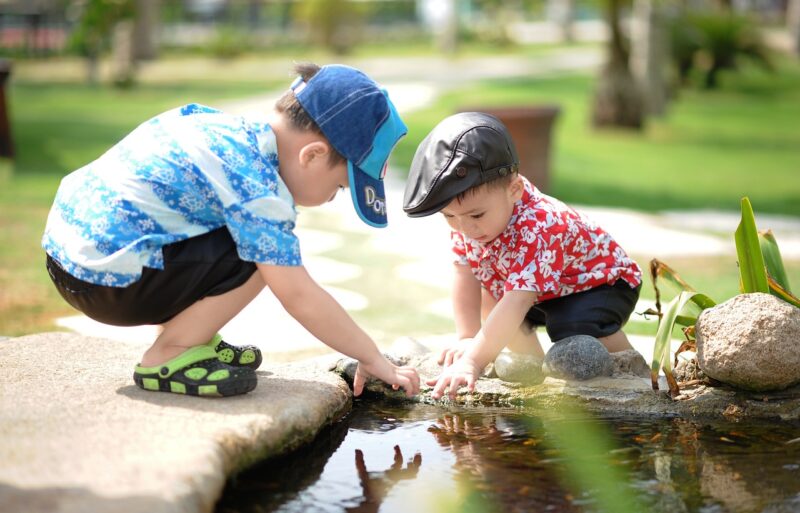The Power of Positive Words in Parenting
November 16, 2024

Parenting is an incredible journey filled with countless learning experiences and challenges. The words we choose to use can have a profound impact on our children’s development, self-esteem, and overall well-being. Words shape the impressionable minds of our little ones and can either build them up or tear them down. In this article, we will explore the significance of using positive language in parenting, backed by research and practical strategies that can empower both parents and children.
1. Understanding the Impact of Words
Scientific studies have shown that language plays a pivotal role in a child’s upbringing. Positive words foster an environment of love and support which bolsters a child’s confidence and social skills. Studies indicate that children who receive more positive reinforcement from their parents tend to have higher self-esteem and are better equipped to handle emotional challenges.
Research also has shown the detrimental effects of negative language. The well-known psychologist Dr. John Gottman emphasizes that children whose parents frequently use negative statements are more likely to exhibit harmful behaviors and can struggle socially. This highlights the profound power our words possess.
2. The Science Behind Positive Language
The idea of using positive words isn’t just a parenting trend; it’s grounded in psychological research. Positive reinforcement, a concept developed by B.F. Skinner, suggests that behaviors followed by favorable outcomes are more likely to be repeated. This principle can be directly applied to parenting to instill desired behaviors in children.
When we use affirming words, we condition our children to associate good behavior with positive reinforcement. For example, saying “I love how you shared your toys with your friend” will encourage sharing in the future, while criticism such as “You should have shared your toys” may lead to feelings of shame and resentment.
3. Strategies for Positive Parenting Language
Implementing positive language in parenting doesn’t require an overhaul of your communication style. Here are some practical strategies to get started:
- Focus on Positive Reinforcement: Make an effort to acknowledge and celebrate the positive behaviors of your children. Instead of pointing out what they did wrong, highlight their successes to reinforce good behavior. Example: “You did a great job cleaning your room today! I appreciate your effort!”
- Empower with Affirmations: Teach your children self-affirmation techniques. Encourage them to say positive statements about themselves, such as “I am brave,” or “I can do hard things.” This practice fosters self-esteem and resilience.
- Use “I” Statements: Transform “You did this wrong” into “I feel concerned when this happens”. This approach maintains a constructive tone while expressing your thoughts or feelings. It helps children understand the impact of their actions without feeling attacked.
- Encourage a Growth Mindset: Inspire your children to embrace challenges by stating “You’re learning something new, and that takes practice”. This nurtures resilience and motivates them to keep trying despite difficulties.
4. The Role of Emotional Regulation
Positive language enhances not only the parent-child relationship but also helps children develop emotional regulation skills. By modeling positive communication, parents can teach their children how to express themselves in healthier ways. A child who hears their parent express feelings with positive language is more likely to do the same.
If a child struggles with frustration, it is better to respond with phrases like “I can see you’re really upset. Let’s take a few deep breaths together” rather than “Stop whining.” The former supports emotional awareness, while the latter invalidates their feelings.
5. Creating a Supportive Environment
To foster a culture of positivity at home, it’s essential to create an environment where open communication thrives. This can be achieved by:
- Listening Actively: Encourage your children to share their thoughts and feelings by practicing active listening. Show them that their opinions matter, and in turn, they’ll be more likely to use positive language in their discussions with you and others.
- Modeling Positivity: Children learn from observing their parents. If you use positive language while speaking to others, your children will mimic this behavior. Make it a habit to thank people, offer compliments, and express gratitude in your daily interactions.
- Establishing a Family Ritual of Gratitude: Make it a practice to share one positive moment or something they are grateful for during dinner or bedtime. This will encourage your child to recognize and communicate the good around them, reinforcing a mindset of positivity.
6. Handling Negative Situations Positively
It’s normal for children to face challenges and conflicts as they grow up. When negative behaviors arise, it’s crucial to address these issues with positive language as well. Instead of resorting to harsh statements or criticism, frame your responses positively. For instance, replace “Why did you do that?” with “What could you do differently next time?” This encourages problem-solving skills while allowing the child to reflect on their choices.
Encouraging kids to think about better choices helps them to take responsibility while considering the impact of their actions.
7. The Long-Term Benefits
Adopting positive language in your parenting style is not just about immediate outcomes. The long-term benefits are invaluable. Children raised in affirming environments are more likely to develop into resilient, confident adults who effectively handle stress and build healthy relationships.
The emotional foundation built through the use of positive language equips children with essential life skills to navigate the complexities of adulthood. They will be less likely to exhibit symptoms of anxiety or depression, creating a healthier future generation.
Conclusion
The power of positive words in parenting is undeniable. By consciously choosing to communicate positively, you can profoundly influence your child’s emotional and psychological development. Practicing constructive language fosters a nurturing environment where children feel safe to express themselves and grow.
Empower your children to reach their full potential by consistently reinforcing positivity, gratitude, and understanding. Embrace the journey of parenting with positive language and witness the remarkable transformation it brings to your familial relationships and your child’s future prospects.







